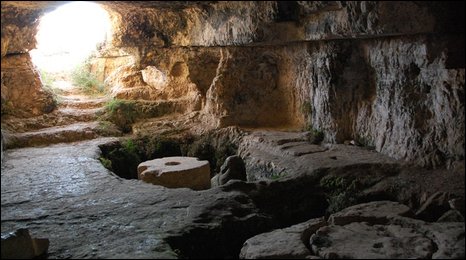 Over at The Atlantic, Brandeis historian Yoni Applebaum is speculating on why sweet wines are favored for Passover. He tells an intriguing story involving homemade (or at least locally-produced) raisin wine and the gradual emergence of the native Concord variety as the grape of choice for a series of New York wineries catering to the U.S. market for kosher wine. An advertising slogan once touted the Mogen David brand as, “wine like Grandma used to make.”
Over at The Atlantic, Brandeis historian Yoni Applebaum is speculating on why sweet wines are favored for Passover. He tells an intriguing story involving homemade (or at least locally-produced) raisin wine and the gradual emergence of the native Concord variety as the grape of choice for a series of New York wineries catering to the U.S. market for kosher wine. An advertising slogan once touted the Mogen David brand as, “wine like Grandma used to make.”
Applebaum’s piece is delightful reading, but I doubt he’s provided a satisfactory answer to the key question he poses: namely, why these wines were from the beginning made in a sweet style.
My guess is you have reach much further back to find the sources of a persistent preference for high levels of alcohol and residual sugar in Jewish ceremonial wine; back to early Iron Age kingdoms of the eastern Mediterranean where both the climate and prevailing technique (see the open stone wine press, above) favored the development of super-ripe grapes whose sugars could never be fermented quite to dryness. Since wild yeasts have only a limited tolerance for high levels of alcohol and these levels rise as fermentation advances, yeast activity grinds to a halt leaving some sugars in the wine. Almost all luxury wines in the ancient eastern Mediterranean were both (relatively) high in alcohol and sweet.
It’s observable that things set apart for religious and ceremonial use tend to cling to their ancient forms. Examples of this include the anachronistic use of robes instead of suits, scrolls instead of books, and archaic languages in place of living ones. It seems reasonable that something like this is in play with respect to wine. Even as notions of fine wine evolved toward drier, more austere models, wines for ceremonial use tended to retain their original, archaic character.
In fact, there’s no reason to assume that Concord grapes can’t be vinified to dryness. And it’s clear that there are many options for fully dry, European-style Kosher wines today. If a preference for sweet wines at Passover seems loath to go away, we may well have to look back to the time of King David — rather than Mogen David — to know why.
Originally posted on Boston.com